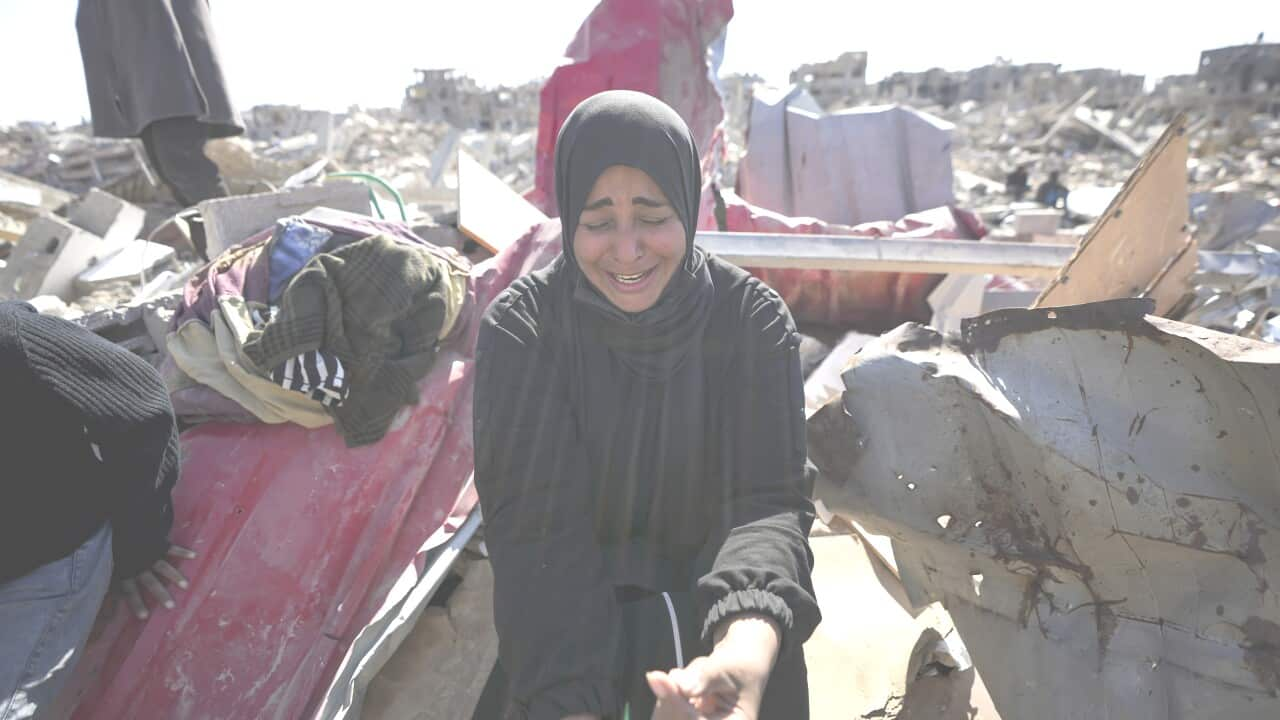Displaced Palestinians are slowly returning to their destroyed homes in Gaza, as a ceasefire agreement to pause 15 months of war between Israel and Hamas appears to be largely holding up.
The United Nations said that 915 aid trucks entered the strip on Tuesday, as humanitarian organisations expressed cautious hope that a sustained truce could allow them to rapidly scale up support for those most in need.
The UN cited information from Israel and the ceasefire guarantors, the US, Qatar and Egypt.
The first phase of the ceasefire – which took effect on Sunday – has so far led to the release of three of the 33 hostages held by Hamas Some 94 hostages remain in Gaza. Israel also started releasing Palestinian prisoners as part of the deal.
Phase one will last for 42 days and negotiations are still needed for a permanent cessation of hostilities that would lower geopolitical tensions.
The UN said some 630 aid trucks began entering the Palestinian enclave on Sunday, with at least 300 of them going to the north, where experts have warned a famine looms.
The ceasefire deal requires 600 truckloads of aid to be allowed into Gaza every day of the initial six-week ceasefire, including 50 carrying fuel. Half of the 600 aid trucks would be delivered to Gaza’s north.
Data from the UN Palestinian relief agency UNRWA showed 2892 aid trucks entered Gaza in December. Aid is dropped off on the Gaza side of the border, where it is picked up by the UN and distributed.
But gangs and looters have made that hard. Data from the United Nations Office for the Coordination of Humanitarian Affairs shows 2230 aid truckloads — an average of 72 a day — were picked up in December, while between 1 and 5 January it was a daily average of 51.
Israel has laid waste to much of Gaza and the pre-war population of 2.3 million people has been displaced multiple times.
Humanitarian aid trucks entering the Gaza Strip on Tuesday. Source: AP / Jehad Alshrafi
UN secretary-general Antonio Guterres has described the humanitarian situation as “catastrophic”.
Guterres told the UN Security Council on Monday that the UN still faces “significant obstacles, challenges and constraints”. He said the UN aid groups and the private sector need rapid, safe and unimpeded access.
“Visas, permits, and other enabling conditions must be in place quickly to allow a surge of desperately needed relief,” he told the 15-member council.
“We require the necessary technical, protective and communications equipment.”
Guterres said Israel and Hamas must coordinate with the UN in a timely and effective manner so it can do its humanitarian work.
“This also includes the restoration of public order and safety to prevent the looting of humanitarian supplies,” he added.
He urged countries to take in people who need medical treatment, for sufficient commercial supplies to be able to enter Gaza and for explosive ordnances to be removed.
Israel says Hamas killed some 1,200 people in the October 7 attack that triggered the war and the health ministry in Gaza says more than 47,000 Palestinians have been killed in the conflict.

